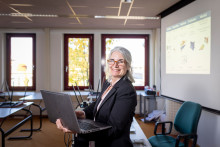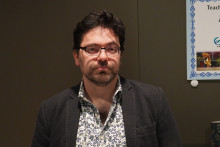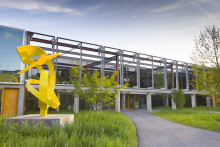‘The Human Cities Coalition is a conglomerate of private companies, government organizations, NGOs and academic institutes dedicated to making cities more inclusive and sustainable,’ explains Jeroen Verplanke, researcher from the ITC faculty, which is one of the leading partners of the coalition.
‘The Dutch touch’
‘Although the coalition consists of Dutch organizations, the focus isn’t on the Netherlands, but rather on what the Netherlands can offer to the world,’ continues Verplanke. ‘We offer the “Dutch touch”, the innovation and expertise unique to the Netherlands. We use the Dutch expertise in water management as the base and we aim to improve the quality of life in cities worldwide.’
The Human Cities Coalition currently concentrates on two delta cities, Jakarta and Manila. ‘These cities suffer from many issues related to global warming, such as frequent floods due to land subsidence and sea level rising,’ says Verplanke. ‘One of the goals of the coalition will therefore be to see how we can build differently in these cities, so they are less prone to flooding. However, our projects will include a lot more than just infrastructure upgrade. We want to emphasize the human element of cities, ensure facilities and services. Simply make cities more livable.’

‘Locals are the drivers of the projects’
Local communities will play an important role in the Human Cities Coalition projects. ‘The first step is to reach out to the local population and find out what is important for them, what they struggle with. Local decision makers are the drivers of all the projects, they identify the problems and, afterwards, the involved companies and organizations come up with solutions,’ clarifies Verplanke.
How exactly will ITC be involved in the coalition and its activities? ‘The UT is a part of the leading committee and provides guidance on projects. We can contribute a lot through our large international network and our expertise,’ answers Jeroen Verplanke. ‘Thanks to our staff, students and alumni, we have very good connections with organizations and universities worldwide. Besides our role as a networking partner, we can also offer our expertise, especially on urban planning.’
New research possibilities
ITC’s involvement also opens doors to new research possibilities. ‘We can focus the work of our students to the cities of Jakarta and Manila, because we already have a lot of students from Indonesia. Our membership is mutually beneficial,’ says Verplanke. At this moment, there are, however, no specific plans for projects of the Human Cities Coalition.







